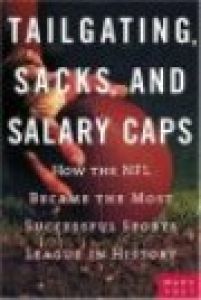Join getAbstract to access the summary!

Join getAbstract to access the summary!
Mark Yost
Tailgating, Sacks, and Salary Caps
How the NFL Became the Most Successful Sports League in History
Kaplan Publishing, 2006
What's inside?
Much more than a game: How National League Football became a high-scoring business.
Recommendation
Baseball may be the Great American Pastime, but professional football is America's passion. With revenues in the billions of dollars, massive TV audiences thirsting for its product and merchandise flying off the shelves in thousands of stores, the National Football League is a textbook example of how to build and maintain a thriving pro sports league. While professional baseball, basketball and hockey have all experienced labor strife and endured difficult financial times, the NFL has largely avoided such crippling problems. That's mainly because of its salary cap and a revenue-sharing system that benefits teams in smaller media markets as well as teams in major metropolitan cities. In the NFL, owners and players consider themselves partners in an enormously successful enterprise, rather than operating as greedy adversaries trying to squeeze every penny from each other. Like any other multi-million dollar corporation, the NFL succeeds because of smart management and foresight. getAbstract believes that both the casual fan and the rabid NFL loyalist will appreciate author Mark Yost's expert examination of the league's economic infrastructure and behind-the-scenes politics. Highly recommended.
Summary
About the Author
Mark Yost has written about the business of sports for two decades. A former bureau chief for the Dow Jones Newswire, he also worked for The Wall Street Journal, where his work still appears. He has also written for The New York Times and the Philadelphia Inquirer.

















Comment on this summary